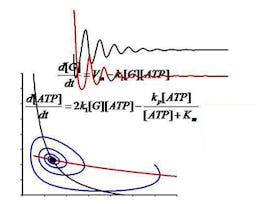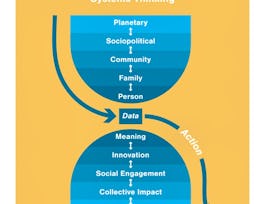This course can also be taken for academic credit as ECEA 5733, part of CU Boulder’s Master of Science in Electrical Engineering degree.

Offrez à votre carrière le cadeau de Coursera Plus avec $160 de réduction, facturé annuellement. Économisez aujourd’hui.


Battery State-of-Health (SOH) Estimation
Ce cours fait partie de Spécialisation Algorithms for Battery Management Systems

Instructeur : Gregory Plett
14 640 déjà inscrits
Inclus avec 
(155 avis)
Ce que vous apprendrez
How to implement state-of-health (SOH) estimators for lithium-ion battery cells
Compétences que vous acquerrez
- Catégorie : How to implement state-of-health (SOH) estimators for lithium-ion battery cells
Détails à connaître

Ajouter à votre profil LinkedIn
31 devoirs
Découvrez comment les employés des entreprises prestigieuses maîtrisent des compétences recherchées

Élaborez votre expertise du sujet
- Apprenez de nouveaux concepts auprès d'experts du secteur
- Acquérez une compréhension de base d'un sujet ou d'un outil
- Développez des compétences professionnelles avec des projets pratiques
- Obtenez un certificat professionnel partageable


Obtenez un certificat professionnel
Ajoutez cette qualification à votre profil LinkedIn ou à votre CV
Partagez-le sur les réseaux sociaux et dans votre évaluation de performance

Il y a 6 modules dans ce cours
As battery cells age, their total capacities generally decrease and their resistances generally increase. This week, you will learn WHY this happens. You will learn about the specific physical and chemical mechanisms that cause degradation to lithium-ion battery cells. You will also learn why it is relatively simple to estimate and track changes to resistance, but why it is difficult to track changes to total capacity accurately.
Inclus
8 vidéos13 lectures7 devoirs1 sujet de discussion1 laboratoire non noté
Total capacity is often estimated using ordinary-least-squares (OLS) methods. This week, you will learn that this is a fundamentally incorrect approach, and will learn that a total-least-squares (TLS) method should be used instead. You will learn how to derive a weighted OLS solution, to use as a benchmark, and how to derive a weighted TLS solution also.
Inclus
7 vidéos7 lectures7 devoirs4 laboratoires non notés
Unfortunately, the weighted TLS solution you learned in week 2 is not well suited for efficient computation on an embedded system like a BMS. As an intermediate step toward finding an efficient weighted TLS method, you will first learn a proportionally weighted TLS method this week. You will then learn how to generalize this to an "approximate weighted TLS" (AWTLS) method, which gives good estimates, and is feasible to implement on a BMS.
Inclus
7 vidéos7 lectures7 devoirs4 laboratoires non notés
So far this course, you have learned a number of methods for estimating total capacity. This week, you will learn how to implement those methods in Octave code. You will also explore different simulation scenarios to benchmark how well each method works, in comparison with the others. The scenarios are representative of hybrid-electric-vehicle (HEV) and battery-electric-vehicle (BEV) applications, but the principles learned can be extrapolated to other similar application domains.
Inclus
6 vidéos6 lectures6 devoirs5 laboratoires non notés
In the third course of the specialization, you learned how to use extended Kalman filters (EKFs) and sigma-point Kalman filters (SPKFs) to estimate the state of a battery cell. In this honors week, you will learn how to extend those concepts to apply EKF and SPKF to estimating the parameters of a battery-cell model if the state is known, and also how to simultaneously estimate both the state and parameters of a cell model.
Inclus
6 vidéos6 lectures4 devoirs2 laboratoires non notés
You have learned several different total-capacity estimation methods. Some of these methods work better than others in general, but any method is only as good as the data you give it. In this project, you will explore a different way to determine the "x" and "y" data you use as input to the total-capacity estimation methods.
Inclus
1 devoir de programmation1 laboratoire non noté
Instructeur

Recommandé si vous êtes intéressé(e) par Electrical Engineering

Icahn School of Medicine at Mount Sinai

University of Minnesota

University of Colorado System
Préparer un diplôme
Ce site cours fait partie du (des) programme(s) diplômant(s) suivant(s) proposé(s) par University of Colorado Boulder. Si vous êtes admis et que vous vous inscrivez, les cours que vous avez suivis peuvent compter pour l'apprentissage de votre diplôme et vos progrès peuvent être transférés avec vous.¹
Pour quelles raisons les étudiants sur Coursera nous choisissent-ils pour leur carrière ?




Avis des étudiants
Affichage de 3 sur 155
155 avis
- 5 stars
78,70 %
- 4 stars
16,12 %
- 3 stars
3,22 %
- 2 stars
1,29 %
- 1 star
0,64 %

Ouvrez de nouvelles portes avec Coursera Plus
Accès illimité à plus de 7 000 cours de renommée internationale, à des projets pratiques et à des programmes de certificats reconnus sur le marché du travail, tous inclus dans votre abonnement
Faites progresser votre carrière avec un diplôme en ligne
Obtenez un diplôme auprès d’universités de renommée mondiale - 100 % en ligne
Rejoignez plus de 3 400 entreprises mondiales qui ont choisi Coursera pour les affaires
Améliorez les compétences de vos employés pour exceller dans l’économie numérique
Foire Aux Questions
Access to lectures and assignments depends on your type of enrollment. If you take a course in audit mode, you will be able to see most course materials for free. To access graded assignments and to earn a Certificate, you will need to purchase the Certificate experience, during or after your audit. If you don't see the audit option:
The course may not offer an audit option. You can try a Free Trial instead, or apply for Financial Aid.
The course may offer 'Full Course, No Certificate' instead. This option lets you see all course materials, submit required assessments, and get a final grade. This also means that you will not be able to purchase a Certificate experience.
When you enroll in the course, you get access to all of the courses in the Specialization, and you earn a certificate when you complete the work. Your electronic Certificate will be added to your Accomplishments page - from there, you can print your Certificate or add it to your LinkedIn profile. If you only want to read and view the course content, you can audit the course for free.
If you subscribed, you get a 7-day free trial during which you can cancel at no penalty. After that, we don’t give refunds, but you can cancel your subscription at any time. See our full refund policy.




